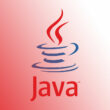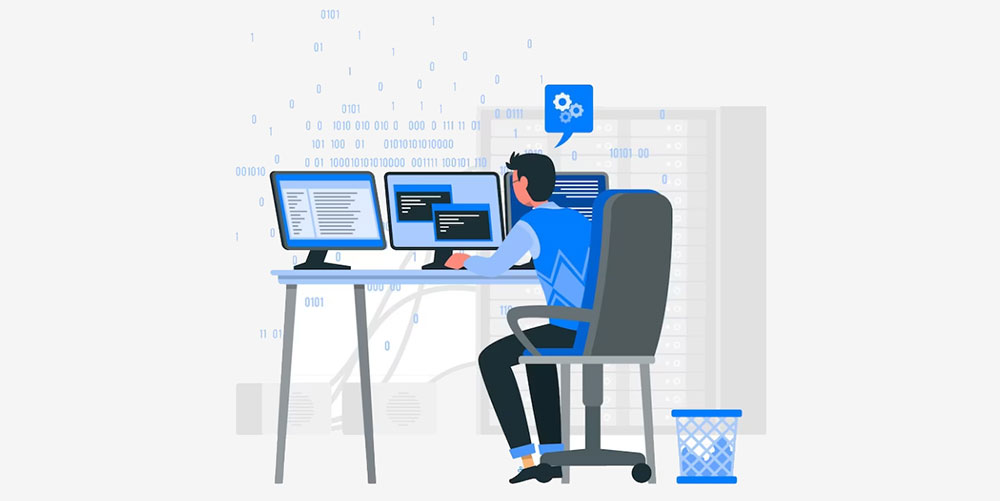Looking for a good software development contract template to use in relation to your developers?
We’ve got you covered.
Contracts are a necessary part of any business, and equally so in software development.
This type of contract is typically called a software development agreement. The agreement defines what the expectations are for both parties.
It also defines deadlines and performance expectations, including expectations for time and amount of payment. A good contract legal contract provides both parties with legal protection.
Putting an agreement in writing also provides a good reference for both parties to reference in the future. The old adage, “Good fences make good neighbors” is also true in the business world. Good contracts make for good business relationships.
When boundaries and expectations have been clearly defined things tend to go smoother. Differences can quickly be resolved and progress is made quickly. When the agreement is verbal, murky, or confusing, small issues can grow into legal headaches.
Key Points of a Standard Contract
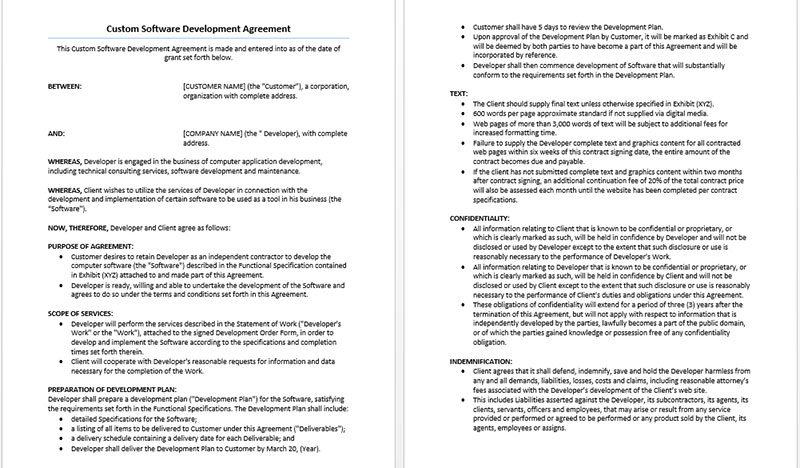
A well-rounded software development agreement usually covers some standard information, including:
- Scope of Work
- Payments Terms
- Non-Disclosure
- Intellectual Property Rights
Scope of Work
Scope of work can clarify what the expectations are for the software developer. This means it’s important to define specifics of what will be included in the job and what things won’t be included. Is there a range of hours that will be included in the project? What are the specific features? Are maintenance services included? Are there revisions allowed? If so, how many?
These types of scope of work questions should be addressed in the agreement between the parties.
Confidential Information
Software development may often place confidential information under the control of either party. It’s important that the contract clearly defines how confidential information will be handled. Many software development agreements also stipulate the consequences of failing to keep confidential matters confidential.
Confidential information can cover a wide array of data including:
- intellectual-property
- payment accounts
- fee schedule
- source code
- patents information
- copyrighted material
- party identities
- trade secrets
Payment Terms
Payment terms should be clearly defined in any software development agreement, including amounts, milestones, and dates. Will expenses be reimbursed? If a payment is missed will written notice be given? If so, when? Is payment due upon receipt?
Failure to pay may result in a termination of the agreement. It may also result in legal action. The software development agreement may include an agreement between the parties to make the attorneys’ fees become the responsibility of the breaching party.
Intellectual Property
Software development always involves intellectual property, and the incorporation of contract review for software licensing agreements can ensure clarity and compliance. The software development contract should clearly define who is the owner of intellectual property. Intellectual property may include:
- source code
- graphic art and design
- trade secrets
- copyright
- patent
Software Development Contract Template Example
The following is a software development contract template that you may find helpful in creating your own software development agreement:
NOW THEREFORE, in consideration of the mutual promises and covenants set forth herein and intending to be legally bound, the Parties hereto agree as follows:
1. Developer’s duties
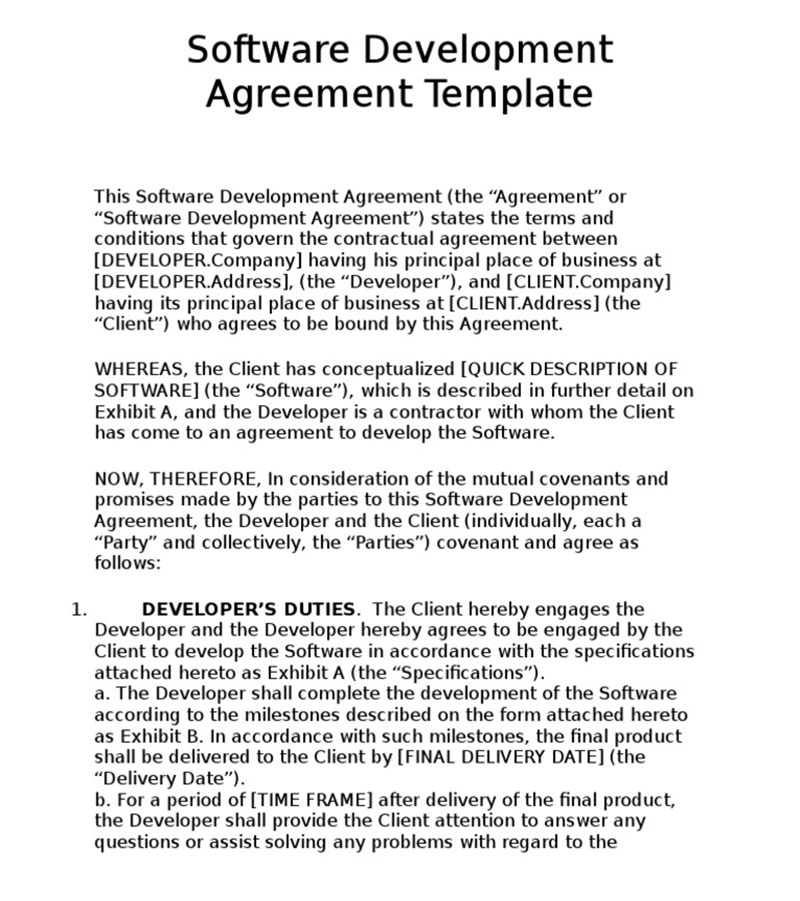
The Client hereby engages the Developer and the Developer hereby agrees to be engaged by the Client to develop the Software in accordance with the specifications attached hereto as Exhibit A (the “Specifications”).
The Developer shall complete the development of the Software, the final product shall be delivered to the Client by [Final delivery date] (the “Delivery Date”).
For a period of [Time frame] after delivery of the final product, the Developer shall provide the Client attention to answer any questions or assist solving any problems with regard to the operation of the Software up to [Number of hours] of hours free of charge and billed to the Client at a rate of [Rate] per hour for any assistance thereafter. The Developer agrees to respond to any reasonable request for assistance made by the Client regarding the Software within [Time frame] of the request.
The Client may terminate this Software Development Contract at any time upon a material breach of the terms herein and failure to cure such a breach within [Time frame] of notification of such a breach.
2. Delivery
The Software shall function in accordance with the Specifications on or before the Delivery Date.
If the Software as delivered does not conform with the Specifications, the Client shall within [Time frame] of the Delivery Date notify the Developer in writing of the ways in which it does not conform with the Specifications. The Developer agrees that upon receiving such notice, it shall make reasonable efforts to correct any non-conformity.
3. Acceptance and Rejection
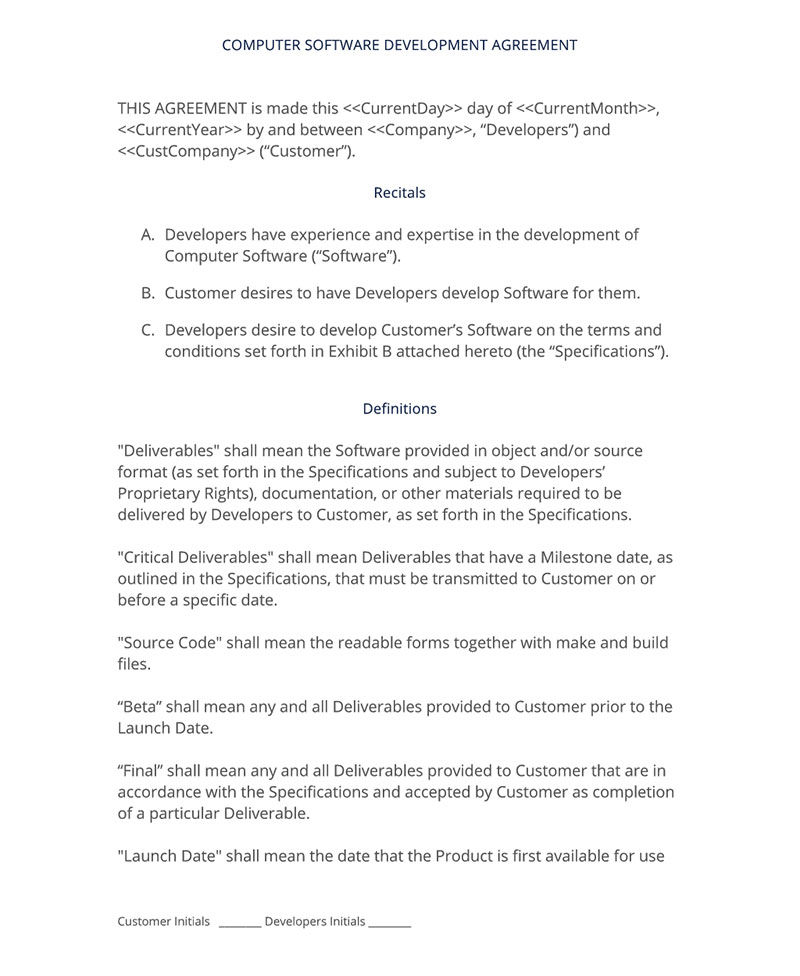
Inspection Period. [Client] will have [Inspection Period] Business Days after [Developer] delivers the [Software] to inspect and test the [Software] to ensure it meets the Acceptance Criteria (the “Inspection Period”).
4. Training and Support Services
Training.
[Developer] shall, at [Developer]’s expense, provide [Client]’s employees with the initial training services necessary and desirable to operate the Software, as further described in the [Attachment], attached to this agreement, at [Developer]’s offices and [on days and times the parties agree to in writing.]
Support
Initial Support. For the [12] month period beginning on the Effective Date, and at [Developer]’s own expense, [Developer] shall provide [Client] with telephone or electronic support during [Developer]’s normal business hours in order to help [Client] locate and correct problems with the Software, and internet-based support system generally available seven days a week, twenty-four hours a day.
5. Compensation
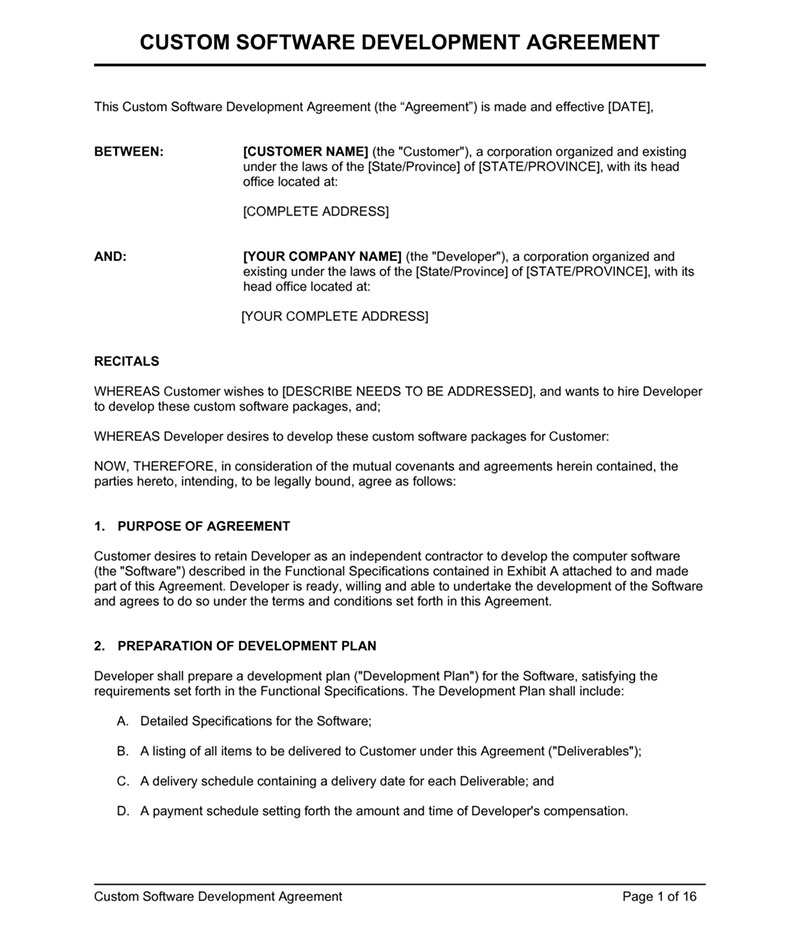
Compensation. In consideration for the Service, the Client shall pay the Company at the rate of [Rate] per hour (the “Hourly Rate”), with a maximum total fee for all work under this Software Development Contract of [Maximum total fee]. Fees billed under the Hourly Rate shall be due and payable upon the Developer providing the Client with an invoice.
To simplify the invoice creation process, many firms use Zintego invoice generators and templates. Moreover, a PDF invoice will be provided for work completed by the developer once every pay period.
6. Intellectual property rights in the software
The Parties acknowledge and agree that the Client will hold all intellectual property rights in the Software including, but not limited to, copyright and trademark rights. The Developer agrees not to claim any such ownership in the Software’s intellectual property at any time prior to or after the completion and delivery of the Software to the Client.
7. Change in specifications
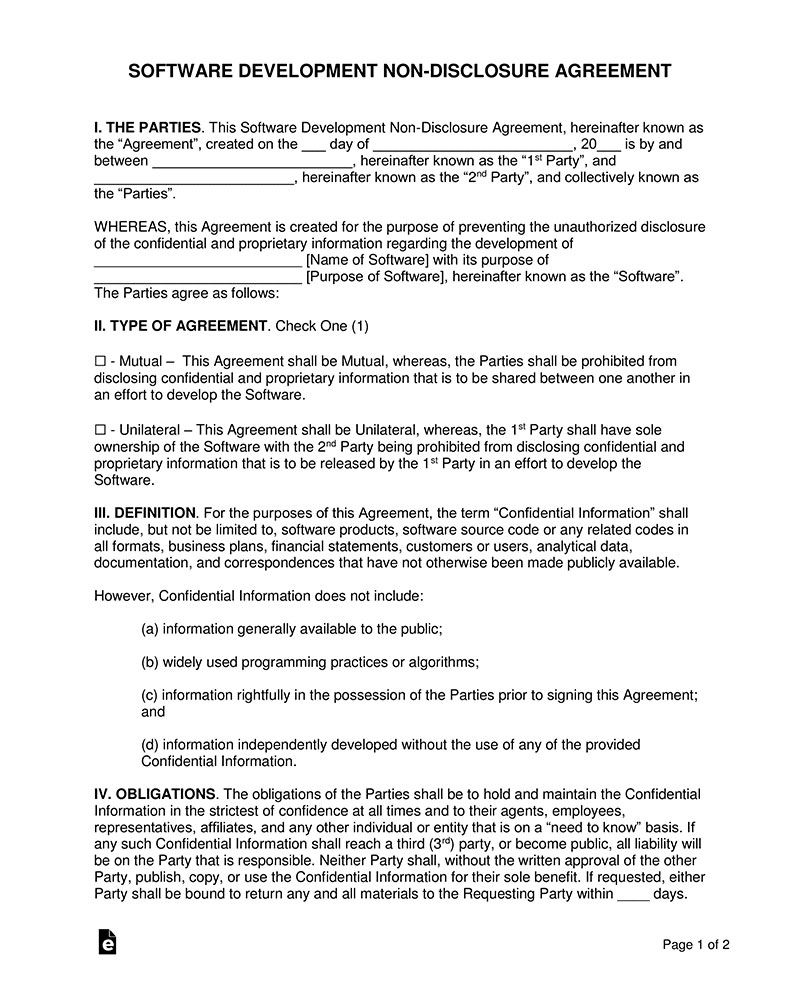
The Client may request that reasonable changes be made to the Specifications and tasks associated with the implementation of the Specifications. If the Client requests such a change, the Developer will use its best efforts to implement the requested change at no additional expense to the Client and without delaying delivery of the Software. In the event that the proposed change will, in the sole discretion of the Developer, require a delay in the delivery of the Software or would result in additional expense to the Client, then the Client and the Developer shall confer and the Client may either withdraw the proposed change or require the Developer to deliver the Software with the proposed change and subject to the delay and/or additional expense. The Client agrees and acknowledges that the judgment as to if there will be any delay or additional expense shall be made solely by the Developer.
8. Confidentiality
The Developer shall not disclose to any third party the business of the Client, details regarding the Software, including, without limitation any information regarding the Software’s code, the Specifications, or the Client’s business (the “Confidential Information”), (ii) make copies of any Confidential Information or any content based on the concepts contained within the Confidential Information for personal use or for distribution unless requested to do so by the Client, or (iii) use Confidential Information other than solely for the benefit of the Client.
9. Developer warranties
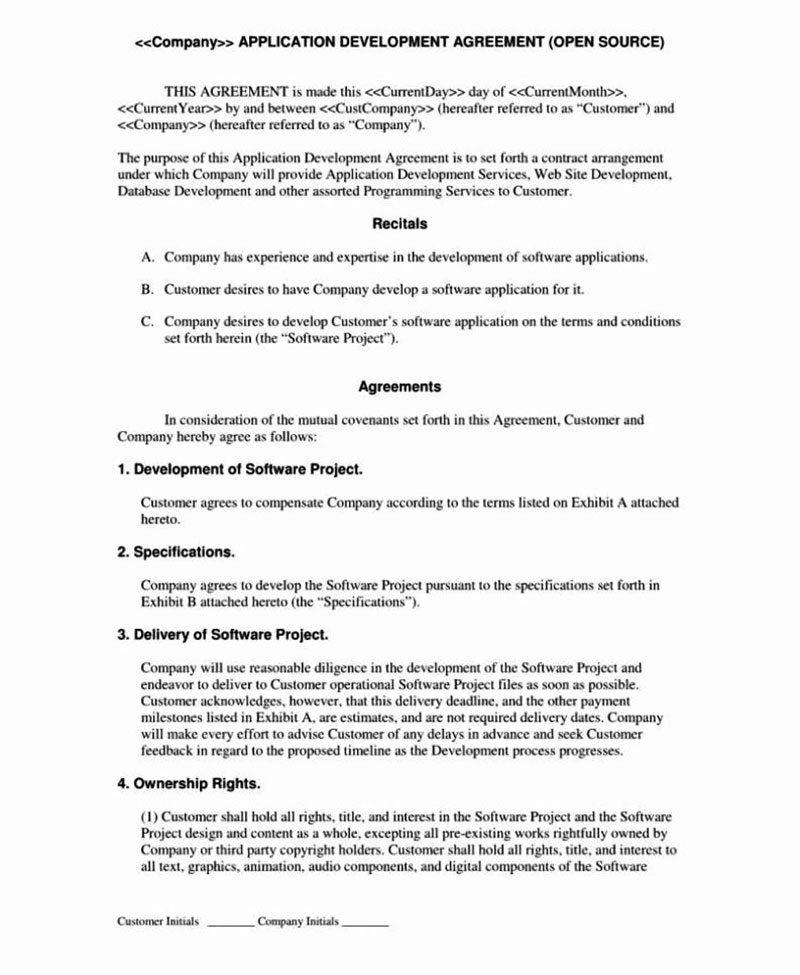
The Developer represents and warrants to the Client the following:
Development and delivery of the Software under this Contract are not in violation of any other agreement that the Developer has with another party.
The Software will not violate the intellectual property rights of any other party.
For a period of [Time frame] after the Delivery Date, the Software shall operate according to the Specifications. If the Software malfunctions or in any way does not operate according to the Specifications within that time, then the Developer shall take any reasonably necessary steps to fix the issue and ensure the Software operates according to the Specifications.
10. Limitation of liability
Neither party will be liable to the other party for any indirect, incidental, consequential, special, punitive or exemplary damages arising as a result of or related to performance of the work, regardless of the type of claim and even if that party has been advised of the possibility of such damages, such as, but not limited to, lost profits, loss of revenue or anticipated profits or lost business.
11. Indemnification
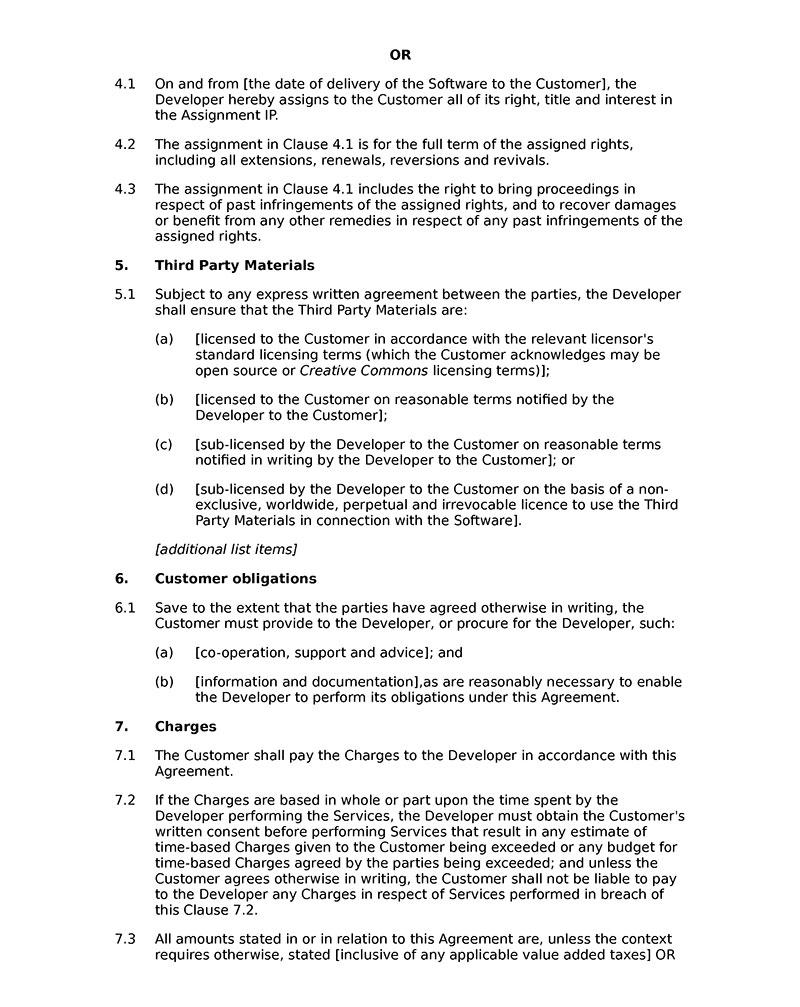
Indemnification by [Client] [Developer] [(as an indemnifying party)] shall indemnify [Client] [(as an indemnified party)] against all losses and expenses arising out of any proceeding
- brought by either a third party, and
- arising Out Of A Claim That The [Deliverable] Infringes The Third Party’S Intellectual Property Rights.
12. No modification unless in writing
No modification of this Contract shall be valid unless in writing and agreed upon by both Parties.
13. Dispute Resolution
Arbitration. Any dispute or controversy arising out of this agreement and [subject matter of the agreement] will be settled by arbitration in [State], according to the rules of the American Arbitration Association then in effect, and by [Number of arbitrators] arbitrators[s].
Judgment. Judgment may be entered on the arbitrator’s award in any court having jurisdiction.
IN WITNESS WHEREOF, each of the Parties has executed this Software Development Contract, both Parties by its duly authorized officer, as of the day and year set forth below.
[Developer.Company]
Signature
MM/DD/YYYY
[Developer.FirstName] [Developer.LastName]
[Client.Company]
Signature
MM/DD/YYYY
[Client.FirstName] [Client.LastName]
In conclusion, a well-executed software development agreement will provide legal protection for both parties.
This will make the expectations for both parties clear. Having all expectations defined will result in better professional relationships and long-term business.
Do you want alternative contract templates as well?
Here are several software development contract template examples you can use:
- Contract Template by PandaDoc
- Contract Template by ApproveMe
- Contract Template by Priori
- Contract Template by HelloBonsai
- Software Development Agreement by Contract Standards
FAQs about software development contract templates
1. What is a software development contract template?
A pre-drafted legal document that spells out the terms and conditions of a software development project is known as a software development contract template. It usually includes topics like the project’s scope, payment conditions, schedule, and intellectual property ownership.
2. What should be included in a software development contract template?
A software development contract template should have clauses for dispute resolution and confidentiality and non-disclosure agreements as well as a thorough description of the project. It should also specify who owns the intellectual property and how the parties will deal with any project modifications or delays.
3. How can a software development contract template protect both parties involved in the project?
By clearly defining expectations, deadlines, payment schedules, and intellectual property ownership, a software development contract template helps safeguard both parties participating in the project. In the event of any disagreements or misunderstandings, the contract can also be used as a point of reference.
4. Are software development contract templates legally binding?
Absolutely, provided that they are properly executed and contain all required elements, software development contract templates are enforceable in court.
5. How can I customize a software development contract template to meet the specific needs of my project?
A software development contract template can be altered to suit the particular requirements of your project by adding or removing provisions, changing the terms of payment, and altering the schedule for the project. To make sure that any changes are lawful, you should speak with legal advice.
6. What are some common mistakes to avoid when using a software development contract template?
Typical errors to avoid when utilizing a software development contract template include leaving out crucial sections, failing to comprehend the agreement’s terms, and failing to seek legal advice before making any changes.
7. How do I determine the appropriate payment structure to include in a software development contract template?
The needs and scope of the project will determine the best payment arrangement for a software development contract template. Fixed-price, hourly, or milestone-based payment models are possible options.
8. What are some clauses that should be included in a software development contract template to address intellectual property ownership?
To address intellectual property rights, a software development contract template should have clauses on ownership of work products, confidentiality and non-disclosure agreements, and license terms.
9. How do I address project delays or changes to the scope of work in a software development contract template?
A software development contract template can manage project delays or modifications to the scope of work by inserting terms that specify how the parties will handle these circumstances. This could involve termination clauses, change order clauses, or penalties for delays.
10. Can a software development contract template be used for both fixed-price and hourly projects?
Certainly, as long as the payment schedule and duration are clearly stated in the contract, a software development contract template can be used for both fixed-price and hourly contracts.
If you enjoyed reading this article on software development contract templates, you should check out this one on the 7 phases of SDLC.
We also wrote about a few related subjects like financial projections for startups, startup consultants, startup advice, startup press kit examples, nearshoring, Berlin startups, types of investors, share options, London startups, gifting shares, software development principles, and risk management process.
- What Is a War Room and How to Use it in Project Management - April 23, 2024
- Business model innovation: What it is and why it matters - April 20, 2024
- What Is A Risk Assessment Matrix And How To Use It - April 8, 2024



